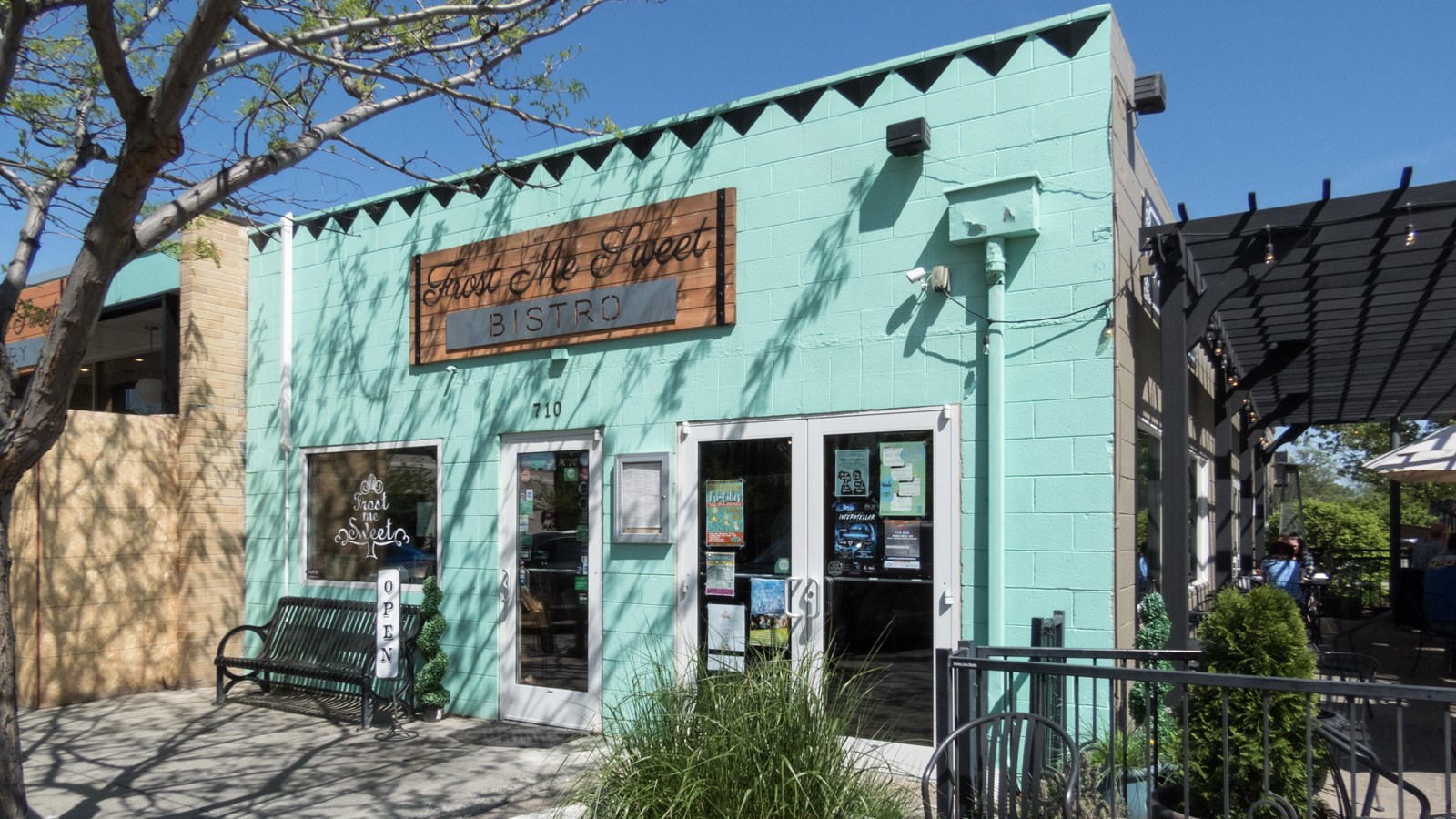Last updated: July 5, 2023
Place
Gress's Meat Market (Frost Me Sweet)

NPS/BURGHART
Built in 1915, this unassuming brick building anchored the community that changed around it. George Gress built and operated Gress’s Meat Market here from 1915 until 1943 when the Manhattan Project displaced most of Richland’s existing businesses and residents. The building has no side windows because butcher Gress had anticipated a growing commercial district. Since closure of the meat market, this building has served as a newspaper office, tavern, library, chocolate store, restaurant, and a sweet shop.
Long-time Richland resident Laverne Sloppy mentioned Gress’s butcher shop in an oral history interview. He noted that Gress stored frozen meat for the surrounding farms that operated without electricity. Sloppy remembered visiting the market where George Gress “always would give us sausage. He'd hang one of those sausages around the kid's neck and stuff.” Like most pre-war residents, the Sloppy family lost their Richland farm to the Manhattan Project.
A dusty farming town founded in 1905, Richland suddenly became a secret city with the arrival of the Manhattan Project. Population swelled from about 250 residents in 1940 to approximately 15,000 residents in August 1945. The newcomers lived in compact, planned suburban neighborhoods of standardized “alphabet homes” designed for streamlined construction. By the end of the war, most buildings and streets in Richland would have been unfamiliar to a pre-war resident. Today, Richland is a thriving community, many of whose residents focus on cleaning up the nuclear and chemical waste from the Manhattan Project and Cold War plutonium production.
Continue Your Journey
The area surrounding Gress’s Meat Market was the center of Richland during the Manhattan Project. It still is today. Within a short walk are the CC Anderson Department Store (Roma House), Richland Players Theater, alphabet homes, Richland Laundry, and the Dyer Building (Gallery at the Park). These structures were important shopping areas and community institutions during the project. Tour these sites or catch a play by the Richland Players to put yourself in the shoes of a worker who moved to this remote community for a top-secret wartime mission.
